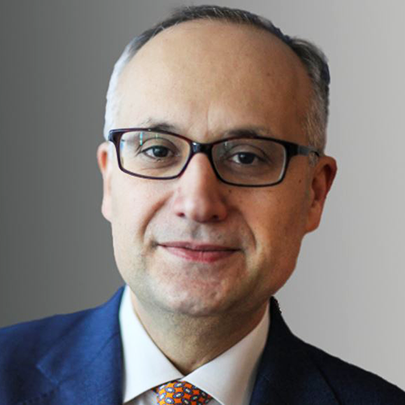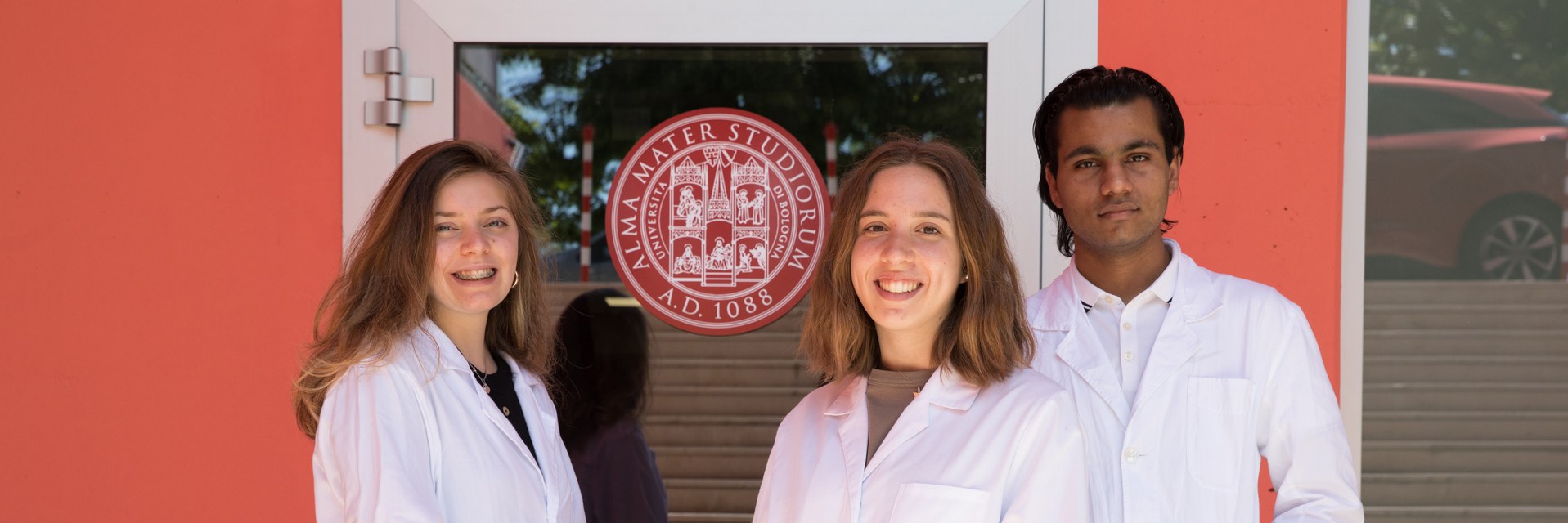
Successful cooperation between the University of Bologna and the FHNW School of Life Science
Interview with Prof. Dr. Fabio Fava
Prof. Dr. Fabio Fava is Professor of Industrial and Environmental Biotechnology at the Faculty of Engineering of the Alma Mater Studorium Università di Bologna (UNIBO). He is a visiting lecturer at the FHNW School of Life Sciences (HLS) and plays a key role in the cooperation between UNIBO and the HLS.
We talked to him about UNIBO and asked him about his work at the HLS and the successful collaboration.
Fabio Fava, how did the relationship between UNIBO and HLS come about and why?
The collaboration with HLS started in 2009, when my research group and a team from the HLS Institute for Ecopreneurship met for the first time for a European FP7 collaborative project on contaminated soil and water remediation. We continued working together, sharing our different backgrounds, equipment and networks, and carried out several successful EU FP7 projects in the field of bioremediation, remediation and biowaste biorefinery. The collaboration between UNIBO and the HLS then grew further in the framework of the European Federation of Biotechnology, especially the Environmental Biotechnology Division, and we have organised several international conferences on environmental biotechnology and bioremediation. And now I am a visiting professor at the HLS, which has further strengthened and expanded the cooperation between UNIBO and the HLS.
As a visiting professor, you maintain regular contact with the HLS. How often do you travel to Muttenz and what are your tasks there?
I'm in Muttenz for a week every 1½ months, but I'm always in touch with colleagues at the university via email. I work with some of them on joint EU projects between UNIBO and HLS, and I help other HLS colleagues to form consortia to apply for open and upcoming Horizon EU Programs. I also guide and advise UNIBO students preparing their Master's dissertations at the HLS and sometimes give seminars to PhD students working here. This year three Chemical and Bioengineering students from UNIBO are at the HLS with the ERASMUS programme, and one from the UNIBO Environmental Engineering programme is here thanks to a grant from the EU Clime KIC (Knowledge Innovation Community) programme.
What has been your experience at the HLS in general and as a guest lecturer in particular?
I started collaborating with HLS colleagues on FP7 collaborative projects: ECOBIOCAP (production of microbial polymers from organic waste and food processing effluents); MINOTAURUS (coordinated by the HLS) and WATER4CROPS, both on enhanced bioremediation of contaminated wastewater & groundwater and integrated upgrading of food processing effluents; and KILL SPILL, which developed strategies for intensifying bioremediation of marine sediments contaminated with (chlorinated) hydrocarbons and for the isolation and industrial recovery of microbes from such contaminated matrices.
Subsequently, I have worked closely with HLS colleagues on the F7 collaborative project BIOCLEAN, which I coordinated and which aimed to develop biotechnological processes and strategies for the biodegradation and depolymerisation of important oleaginous plastics. As HLS Visiting Professor, I am currently involved in several EU projects where UNIBO and HLS are collaborating with complementary tasks. These include ELECTRA, a large EU Horizon 2020 project led by the FHNW with 17 EU partners and 5 core partners from China. I also look after the four UNIBO students mentioned above, who are preparing their experimental theses at the HLS.
My interaction with the HLS and collaboration with its professors has always been effective, stimulating and highly productive. This has been made possible by the unique equipment and infrastructure at the HLS, as well as by the cross-disciplinary and industry-oriented perspective that is implemented internally and in its partnerships.
UNIBO and HLS recently launched a double degree programme. What can you tell us about it? What are the benefits of the programme for the two universities?
The double degree between UNIBO and HLS relates to the international master's degree programme in Earth Resources Engineering coordinated by UNIBO. The same Master's degree is also combined with a double degree by the University of Miami and the Université de Liège. Students can choose to spend a period of 1 or 2 semesters in Muttenz or Bologna. If they choose the one-year programme, students must prepare and discuss their thesis at the host university. Students who successfully complete the programme receive the Laurea Magistrale in Environmental Engineering (LM, 2 years, 120 ECTS) awarded by UNIBO and the Master of Science in Life Sciences (1.5 years, 90 ECTS) awarded by the FHNW. Studying at a university in another country is a fantastic opportunity to learn another language and obtain a diploma from a recognised university abroad, particularly useful if they wish to work in the country where they are studying. In addition, this experience also ensures that their CV is more competitive in the domestic job market. Studying and living abroad allows students to immerse themselves in another culture, and this is an opportunity to develop the open-minded attitude and experience required by modern international employers. Finally, the joint programme will help to further strengthen the cooperation between UNIBO and HLS professors in their teaching programmes, but also in training MSc students, sharing infrastructure and the establishment of joint R&I projects and partnerships.

HLS students who come to UNIBO to take courses and join research teams have a fantastic opportunity to learn Italian and other languages, develop in science and technology and obtain a double degree from a recognised university, which will give them an advantage in the domestic and EU labour market.
We already have UNIBO students who are at the HLS or will soon start their exchange. Is the HLS an attractive partner for UNIBO students?
HLS is a very attractive university for UNIBO students due to the high scientific achievements of its professors, its cross-disciplinarity, very well-equipped laboratories and infrastructure, as well as its industry-oriented focus and opportunities. The existing effective R&I collaboration between the two institutions is another plus point, as it guarantees that exchange students are involved in projects of certain interest to both universities and have motivated supervisors from both sides.
What can you tell us about UNIBO? Why should our students study there?
Founded in 1088, UNIBO is made up of about 5900 permanent staff working in 32 departments in Bologna, but also on the campuses of Cesena, Forlì, Ravenna and Rimini, in buildings and infrastructure covering more than 1 million square metres. It offers 243 degree programmes in science, engineering, medicine, economics, social sciences and humanities, attended by about 83,000 students from all over the country and about 7,000 international students. It also hosts 48 PhD programmes, 55 specialisation schools, 95 first and second level professional Master's programmes, 19 of which are international. 1,321 international students participated in exchange programmes and 1,908 UNIBO students spent a study period abroad in 2020/2021. The city of Bologna, home to the UNIBO Rectorate and about 60% of UNIBO's activities and students, has a rich history dating back to 1000 BC. The centre houses medieval, Renaissance and Baroque monuments, reflecting the city's culture in different periods. Bologna was declared European Capital of Culture in 2000 and was named City of Music by UNESCO in 2006. The University of Bologna is considered the oldest continuously operating university in the Western world. Because of its long history, UNIBO has been associated with some of the finest scientists and academics, including Nicolaus Copernicus, Guglielmo Marconi, Dante Alighieri and Petrarca, among many others. Thus, UNIBO has been an important reference point for European culture throughout history.
Thank you very much for the interview!

